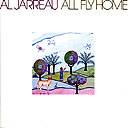Last February my Canadian high school hit the headlines around the world, but for all the wrong reasons. Seven students were killed by an avalanche while on a school skiing trip in the Rocky Mountains to the west of Calgary.
This week a consultant’s report into the school’s Outdoor Education programme was released, and it makes interesting reading. While describing the programme as one of the best in Canada and praising the skill and character of the students on the trip, it criticises the school for failing to systematically assess the unavoidable risks involved and communicate them to parents. However, the parents were also criticised for complacently abdicating their responsibility for their children’s well being.
In February the disaster made the news internationally (even the BBC reported it), but the consultant’s report appears to be of more local interest. The headline in the Globe & Mail on Wednesday was Report into avalanche deaths faults school planning, while CBC Calgary susbsequently reported School to drop some outdoor trips.
Strathcona Tweedsmuir School had an ambitious outdoor education programme even when I was there, and it was the source of many of my best memories of my scholastic career. White water canoeing is the most exhilarating and simultaneously terrifying activity I have ever completed, and yet I would never have experienced it if I hadn’t attended STS. I remember one cross-country skiing trip to Lake O’Hara in Yoho National Park on which the return journey was the definition of bliss. [I notice now that the Lake O’Hara Fire Road trail that we skied crosses several avalanche paths, but I don’t remember being concerned about this at the time.]
One of the most interesting segments of the report concerns the effect of the school’s “instructional style”:
Pressure from peers or teachers can affect the decision-making ability of a student or family. It may be subtle or not. A teacher applying pressure to a student may, at the time, feel that a demanding style will “motivate” a student to achieve. Others may disagree and say that the style is inappropriate.
Some parents of OE 25 students have criticized a “coercive” style they say
is prevalent among select STS outdoor education staff. The staff describe
this style as “having high expectations,” and the students interviewed gave
no evidence to suggest otherwise. To the contrary, students who were
interviewed consider the outdoor education staff at STS to employ
appropriate instructional styles and to be positive role models. However,
the school needs to be aware of and give serious consideration to this topic.In the past, parents have talked to the high school principal and outdoor
education program staff of their concerns about outdoor education teacher
demands and instructional style. As one of his roles, the outdoor education
program coordinator should be responsible to facilitate consistent and
appropriate instructional styles within the program.
I can certainly appreciate this criticism. I remember some teachers applying pressure and itimidating students to participate in activities that didn’t at first appeal. Participating in an activity under duress is unlikely to encourage a positive experience. Everyone would be better off if the motivation to participate was derived from the anticipated rewards of the Outdoor Education programme, rather than fear of the negative consequences of staying at home.
Here’s hoping the school community can learn from this tragedy and use the knowledge to benefit future students.
 I have to say that I’m not surprised. Yesterday a biography of one of my distant cousins arrived in the post from
I have to say that I’m not surprised. Yesterday a biography of one of my distant cousins arrived in the post from 